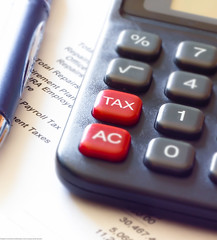
Why not? Because you may be able to keep a vehicle you thought you couldn’t afford. Under certain conditions, a Chapter 13 bankruptcy might allow you to pay smaller monthly car loan payments. You may be able to pay off the debt and own the it free and clear for less than the loan balance.
It may very well be a good decision for you to give up an unaffordable car, but you should consider all of your options first.
If you need a car but cannot afford the monthly payments, you probably figure that you don’t have any choice but to lose it. You know the contract requires you to make the payments or else the vehicle gets repossessed. You may have been trying hard for months to keep or to get the payments current, putting up with late fees and constant notices or phone calls from the creditor threatening repossession. You would have already let the car go except you’ve got to have it for work and/or other family obligations, and you have no way to replace it. You feel stuck, with no good options.
On top of everything else, you might have heard that a bankruptcy can’t help much, at least for hanging onto the car—that you still have to either make the payments, and catch up if you’re behind, or else lose it.
That’s true, in a “straight bankruptcy,” a Chapter 7.
But it’s not necessarily true in a Chapter 13 case. If you meet two conditions, you may be able to do a “cramdown” on the vehicle loan: lower your payments and likely pay less overall on the loan. You may well also be able to lower your interest rate.
The two conditions to be able to do a “cramdown”:
1) Your vehicle loan was entered into more than 910 days before your Chapter 13 case is filed (that’s just about two and a half years before); and
2) At the time your case is filed, the value of your vehicle is less than the balance on your loan.
If your car loan meets these two conditions, your loan could be essentially re-written through a Chapter 13. The total amount you must pay down could be reduced to the value of the car, which is known as a “cramdown”. That’s called the “secured portion” of the debt. Also, a new monthly payment is calculated—representing the amount needed to pay off the smaller balance, often at a lower interest rate, and often on a longer remaining term.
What happens to the “unsecured portion”—the part of the debt beyond the value of the vehicle? It gets lumped in with the rest of your unsecured debts, usually not requiring you to pay anything more to all your unsecured creditors regardless of your vehicle loan.
And what if you’re behind on your vehicle loan when you file your Chapter 13 case—when do you have to pay that arrearage? You don’t. It’s just part of the re-written, new “crammed down” obligation.
As you can see, you may not want to surrender a car or allow it to be repossessed if you could keep it while having it cost you much less to do so. Sometimes having a reliable vehicle is essential to achieving a successful re-start of your financial life. Before you lose that essential part of your financial plan, carefully consider all of your options.
Photo by m.gifford.








 Your bankruptcy filing can stop all your creditors’
Your bankruptcy filing can stop all your creditors’  It sometimes comes up that a person who wants to file for
It sometimes comes up that a person who wants to file for 